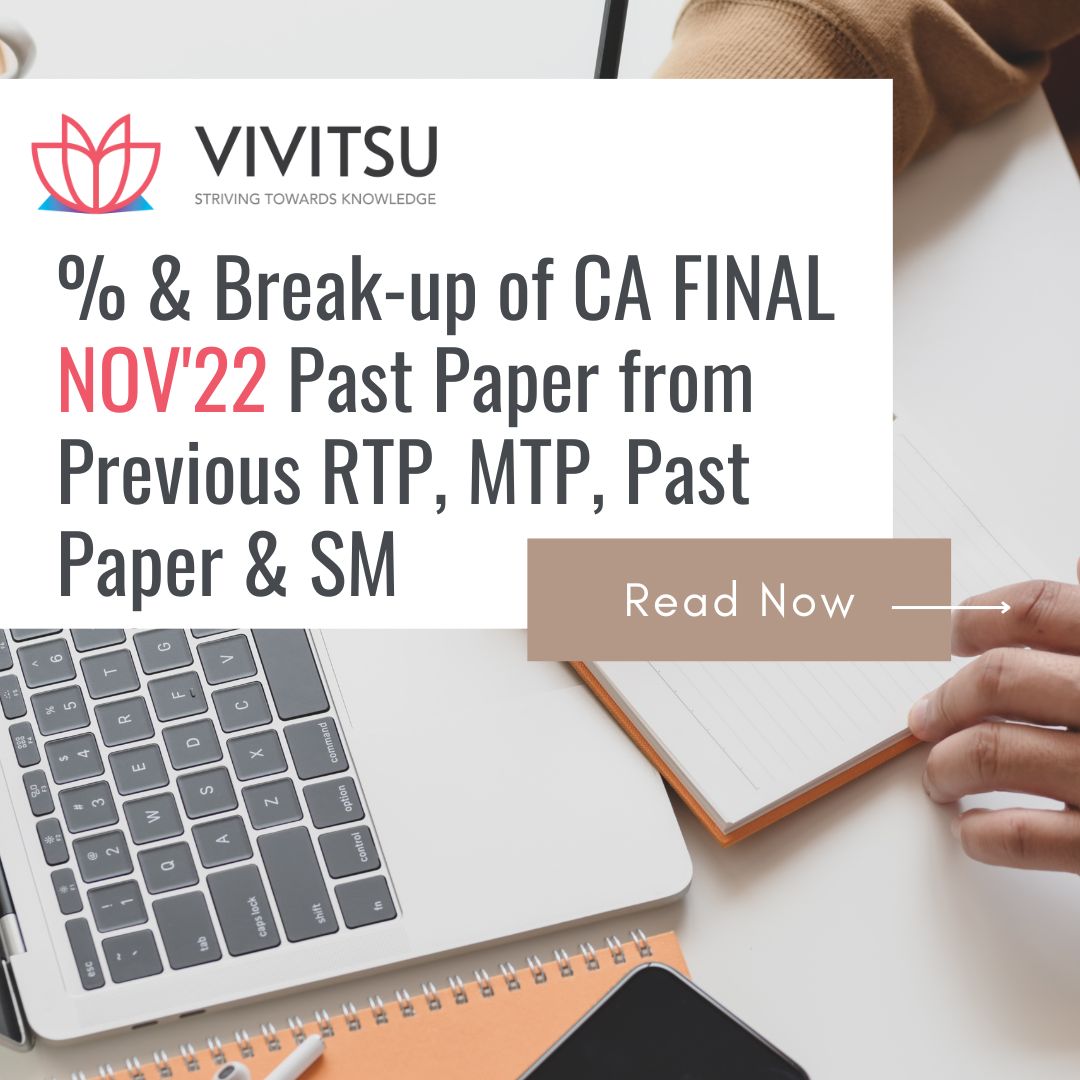Subject wise study-plan:
This study plan is an attempt to highlight some important points while studying which I received from my seniors, my peers, YouTube videos, and some other observations and experiences of mine.
Use a highlighter to mark the key points because I have included my experiences as well. Nevertheless, I have tried to mark them in bold.
Page 1 – Overall, Page 2 – Subject-wise, Page 3 – Other important points
|
Overall – for all the subjects
|
- Write all the explanations of the professors in the note book for future reference; it facilitates an in-depth self-study during leave period. Notes should be handy before the study leaves.
- Fix the materials you will be using subject wise within the first month of study leave at max to avoid confusion. Stick to the same material you would have referred in the first reading, unless you feel it was a gross mistake and not yielding you the desired outcomes.
- Make a timetable. Assess the days you will require to complete the subjects depending on your strength in particular subjects. Take 2 subjects a day (some people do 1/3 as well), preferably theory in the first half and practical in the second. The last revision should be in the reverse order of the papers (i.e. IDT will be the first and FR the last subject in the last revision). However, if there are 1-2 subjects you are afraid of, try to adjust their revision in the last 15-20 days before exam. Like I revised DT 9 days before the exams along with few questions , Papers so as to have some confidence.
- First read is like a buildings base. Do not try to be too quick (compromising quality) or too slow (reducing time for your revisions). Give a detailed thought to every point and clear all the doubts in this phase.
- Try thinking of the solutions to the questions without checking them in the notebook, right from the first reading in study leaves.
- Try solving the all practical and few theory questions in rough, atleast during the first read. For theory subjects “in rough” means to write atleast main points and important sub-points/words.
- Understand the formulas, instead of mugging them up. It may take time but it is worth it.
- Clearly specify your assumptions you are making by way of a note, esp. in FR, SFM, DT and IDT.
- Number of revisions does not matter, quality of revisions does. I scored a rank with 1 reading + 2 revisions (1 proper and 1 paced up, excluding exam day revision) in all the subjects. But it is recommended to do atleast 2 proper revisions to score 500+ marks/ secure a rank.
- Try to give both the ICAI mock tests. I gave 5 subjects in the first mock, then 5 subjects in second mock (3 earlier pending subjects + 2 in which I scored fewer marks). Mocks can be given with study (if you have ample time to give that 1-2 days per subject and analyse time management, though it is ok if you are not able to finish the entire portion) or without studying (if you cannot spare out any time like me – helps to train the mind for unexpected or new questions and tests your ability to recollect the things). For subjects in which you have low confidence, solve any 1 past exam paper. To sum up, minimum 2 papers per subject are a must (1 mock + 1 past paper will also do).
- After the first reading, focus on re-calling rather than re-reading. Even if you are able to recall 50% without reading, it’s more than enough.
- ICAI MCQ booklet is important, the same may or may not appear in the exam. Start doing it with First Revision. But in the end if you don’t have time, do 50 % of the independent MCQs and case scenarios.
- Glance through 3 past papers and 3 RTPs and 3 MTPs at the minimum. You can also solve the past papers in rough and self-assess (this is excluding the above 2 minimum papers).
Timeline :
RTP – Usually with first reading
MTP – With/post first revision
Past Papers – Post first revision
|
|
Sr. No.
|
Subject (in revision order) and How to make it happen!!
|
|
1.
|
Financial Reporting - 12 days read + 6 days R1 + 5 days revision before exam (Full Days*)
|
|
|
- Do not make separate notes. In the notebook, make brackets in front of important paras/ highlight / underline important points by a colored pen/ pencil in such a way so that reading that para / words will cover the entire point.
- Mark important questions from each topic for the revisions if they cover important concepts / based on how difficult they were so that those give you a complete coverage of the ones not marked as well. Even in R1, try to glance through questions not marked, unless they are repetitive or very basic like Goodwill calculation.
- Map your questions bank with ICAI Module and RTPs and note the different + important questions in your questions bank after that chapter itself.
- Solve all the questions without looking at the solution first in all the phases (1 Read + atleast 2 revisions)
- Track time taken in mock tests and reduce non-value adding things like too much presentation / steps as it is difficult to complete
- 5-6 days are optimum for the last day revision. For FR, I had only 1 read + R1 + 1 revision before exams. But if time permits, have a separate R2 as you will generally do in other subjects
|
|
2.
|
Law - 9 days + 4 days + 4 days
|
|
|
- Read each provision thoroughly, interpret them carefully in the first read. Skipping the chapters would never help as ICAI tries to cover even those questions which one thinks won’t be asked.
- ICAI Module or your reference book, you can choose any!
- If time permits, make notes. Otherwise, highlight/underline/write the meaning in short in the margins / vacant spaces in your reference book/ Module.
- Read the questions bank along with the Chapters, then in R1 read only the important questions and in R2 you may/may not see many questions depending on time
- You may make a list of section numbers and a summary of numerical data so that you can glance that before the exams, helping in better recall. (Do this max by R1)
- Writing Section numbers do gain marks, but quoting the wrong ones may even lead to examiner striking off the entire answer. Try remembering section number of important chapters (Like in BOD related chapters, remember the important ones) and some small but important chapters (like Oppression and Mismanagment). 2-3 MCQs may directly ask you to answer basis the Section number. But if not possible, do not overspend your time in it as many people don’t write the same. (I quoted them in 40-50% answers)
|
|
3.
|
SFM - 11 days + 5 days + 4 days
|
|
|
- Understand the logic behind everything during your classes, write it in your notebook and have this understanding very clear in the first read.
- Make a summary book not just of formulas, but also include concepts, solving methods of questions which are unique. Mention the logic of the formula as well so that you can just read this summary + do the question bank and you'll be done in the revisions (without requiring to go back to the original class notebook again)
- Map the additional questions from module. Mark the important questions covering all concepts and questions you find difficult
|
|
4.
|
Audit - 10 days + 4 days + 4 days
|
|
|
- A question bank is must! Infact, I referred my reference book only for concepts/ chapters and did questions directly from the questions bank. Do the questions the same day / next day of doing the theory.
- Underline important words / sentences in the SAs or chapter with a blue pen so that reading those recalls you everything and that it can be covered in 1.5 days
- Making self notes are not so recommended
- Try to split it across 20-25 days, say 3-4 hours a day. Try writing the important points in rough.
- Try to quote SAs correctly in every chapter related to SAs. In some answers where I didn’t remember, I wrote “As per the Standards on Auditing related to (say) related parties, ………..”
|
|
5.
|
SCMPE - 10 days + 5 days+ 3 days
|
|
|
- After doing the regular classes, it is advisable to shift to the ICAI Module
- Do the additional material (like Case Study Digest) given by ICAI depending on time. But if not done by R1, you will never get a chance to do it again
- Mark important questions in the Module.
- Buy a summary book and make changes in the same to align it with ICAI Module
|
|
6.
|
Direct Tax - 11 days + 4 days + 4 days
|
|
|
- After the lectures, study from the summary books of author only because you have to cover much in less time. If possible, have the summary book with you when the lectures are going on and add the pointers which have been skipped in that summary book say in the evening when you refer it once. (Generally, it is the last subject and many people then start with the studies a bit, if not full-fledged)
- Practice the questions from questions bank and map the different questions which are there from ICAI Module. Its ok even if you are able to cover only 60% of the chapters from the module.
- Some section numbers you will automatically remember; try quoting atleast those correctly.
- Do not overspend your time in attempting MCQs in exam (Max 45 minutes)
|
|
7.
|
Indirect Tax - 8 days + 4 days + 3 days
|
|
|
- Analyse all the examples given to have an in-depth understanding.
- Make a handwritten summary. I had few chapters handwritten and few marked which totaled to a complete summary set for me.
- If possible, cover the ICAI module questions also apart from your questions bank. I did not cover that though
- Focus on Customs! Plus you need not do FTP very thoroughly – Compare the cost (time) and returns
- Remember some important and frequently used section numbers if possible.
|
* First read + First Revision (R1) + Second Revision (R2) (excluding exam day revisions) (If time permits, you can further plan accordingly). Further, these are recommended days and not my actual figures. Further, they will depend the days for R1 and R2 will vary as per your strengths and weaknesses.
|
Other important point, which I think made a difference
|
- Exercise daily in the morning for 30-45 minutes
- You cannot afford to get ill during your study leaves as it would mess up your schedule. Have home-made food and fresh fruits and vegetable salads. Do not overeat because it will make you feel dizzy in the afternoon or night and whatever you study will not fit in your mind for the long term
- Have a fixed sleep cycle (Duration : 7-8 hours) and approximately fixed schedule for lunch, dinner and snacks
- Do not sit in a room with low (cold) temperature or low natural light to avoid dizziness
- Throw your cell phone away!! (I did it in the last two months, recommended to do it as early as possible, probably from the 2nd month of study leave)
- Have minimum friends and seniors/ mentors (which are actually eager to help you) with whom you can discuss your queries, difficulties, or at times when you feel low
- Take a day off if you feel frustrated /low. But make sure this does not happen frequently. I played cricket twice a month during the last 2 months
- I had the entire support from my family – My Dad, My Mom, and My Brother
One may feel why I’m placing the banner of good habits here, but I had to cover an all round picture.
|
Mistakes committed by me that you shouldn’t –
- Remember, once left will never be done. If you skip something in first reading, be it due to time or otherwise, it will be 10x difficult to do it later.
- In IDT I did not solve even 50% questions during the first reading, though I made it up in the first revision. Try to do the questions simultaneously in all the subjects.
- I did not pay attention to past MTPs but ICAI does ask from past MTP plus the MTP applicable to you. So try to do as many MTPs as possible. For example, around 20 marks questions of SFM was from the first MTP I gave.
- I used to watch movies till late night (Instead I should say early morning!) every 8-9 days. It helped me feel good, but not recommended because it takes a toll on the next day. Keep your screen times low. I had then reduced my internet pack in the second half of my leaves.
- My writing speed has been a bit slow. Yes it impacted my number 5 question (i.e. the last question I attempted) because even where I was knowing an answer or could have written something decent to fetch marks, I was restricted to writing just 3-4 lines and sum it up.
Have tried to cover all the aspects from what to do when the classes are going on till the study leaves. If that phase is gone, please do not waste your time repenting over the time lost, at whatever stage you are. Place the building blocks going forward in the right direction. Focus on the process, results will follow.
The above are my personal views and advises which I had personally followed. If you are comfortable with some other strategy which is yielding you fair results, the same can also be opted for. For example, my friend did not practice many questions in writing, but he did 3 revisions which helped him score a decent 500 (approx.) score. Ideally, 1 read + 2 quality revisions are sufficient to get through the exams.
Pass – No Pass – Rank – No Rank : Make sure that at the end of your last paper, your heart should tell you – “I gave my best shot, irrespective of the result”…



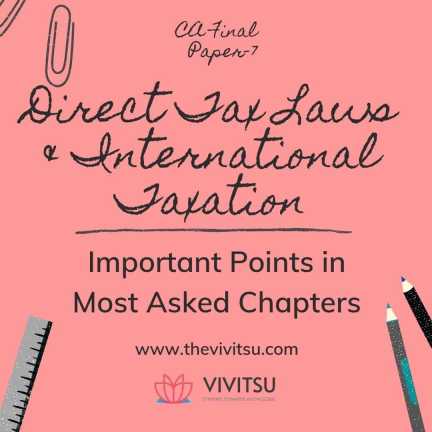
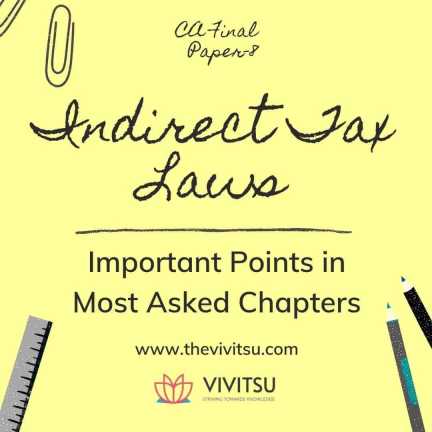
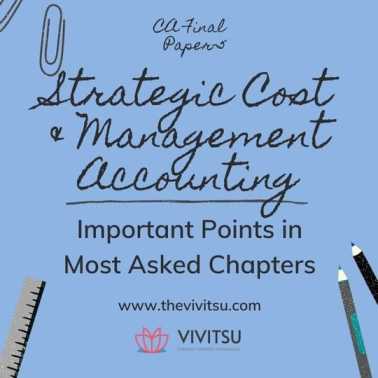

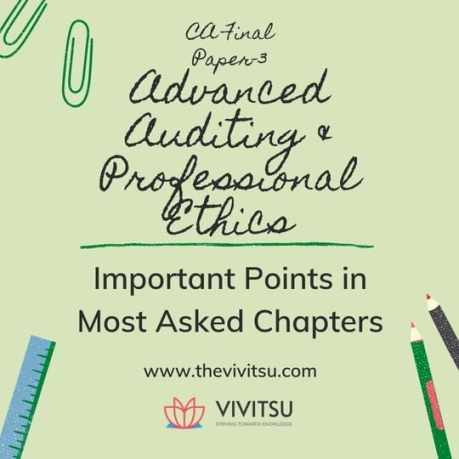
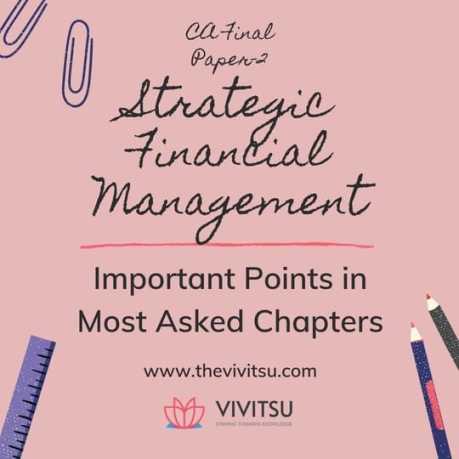
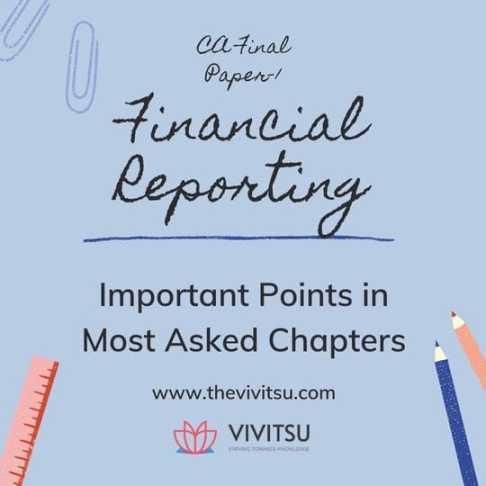
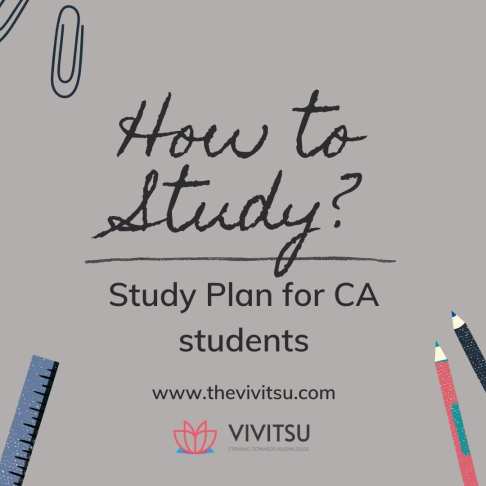




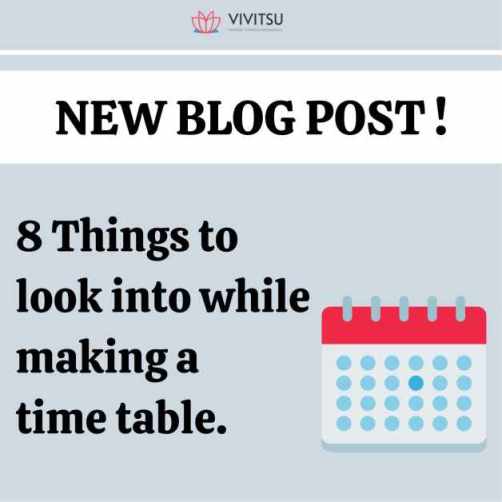

.jpg)





